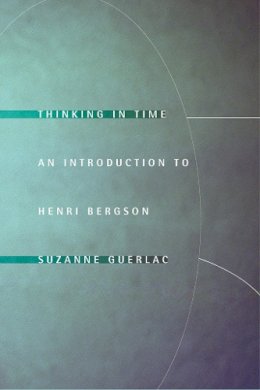
Thinking in Time: An Introduction to Henri Bergson
Suzanne Guerlac
"Under the aegis of time Suzanne Guerlac displaces matter, intuition, memory, and vitalism of the early twentieth century into the wake of poststructuralism and the dilemmas of nature and culture here and now. This book is a landmark for anyone working in the currents of philosophy, science, and literature. The force and vision of the work will enthuse and inspire every one of its readers."
―Tom Conley, Harvard University
"In recent years, we have grown accustomed to philosophical language that is intensely self-conscious and rhetorically thick, often tragic in tone. It is enlivening to read Bergson, who exerts so ... Read more
Henri Bergson (1859–1941), whose philosophical works emphasized motion, time, and change, won the Nobel Prize for Literature in 1927. His work remains influential, particularly in the realms of philosophy, cultural studies, and new media studies. In Thinking in Time, Suzanne Guerlac provides readers with the conceptual and contextual tools necessary for informed appreciation of Bergson's work.
Guerlac's straightforward philosophical expositions of two Bergson texts, Time and Free Will (1888) and Matter and Memory (1896), focus on the notions of duration and memory—concepts that are central to the philosopher's work. Thinking in Time makes plain that it is well worth learning how to read Bergson effectively: his era and our own share important concerns. Bergson's insistence on the opposition between the automatic and the voluntary and his engagement with the notions of "the living," affect, and embodiment are especially germane to discussions of electronic culture.
Show LessProduct Details
About Suzanne Guerlac
Reviews for Thinking in Time: An Introduction to Henri Bergson
James Meyer
Artforum
... Read more
